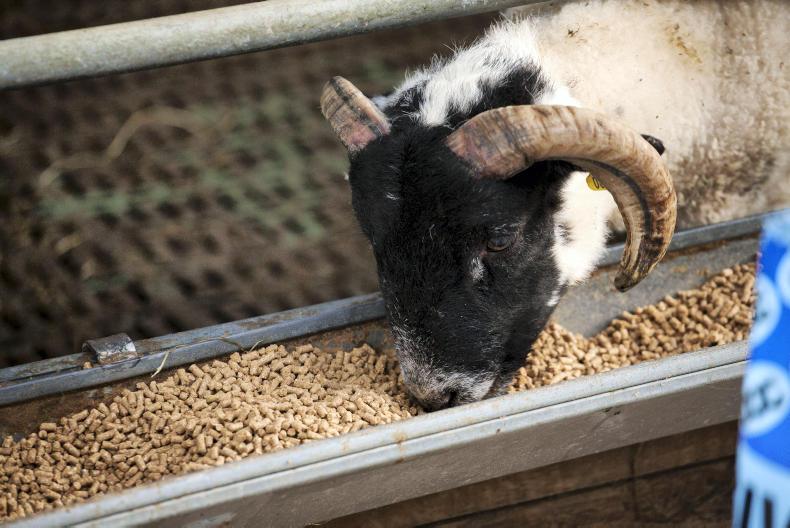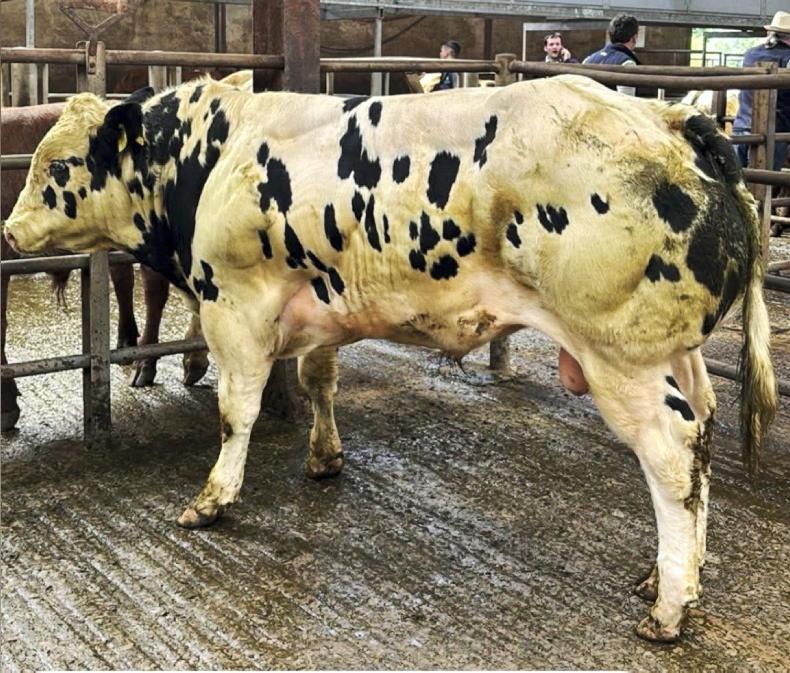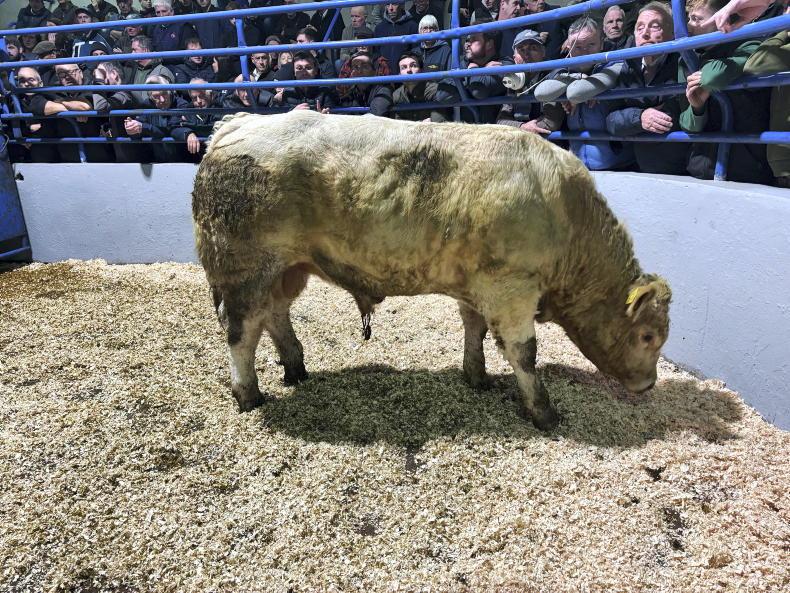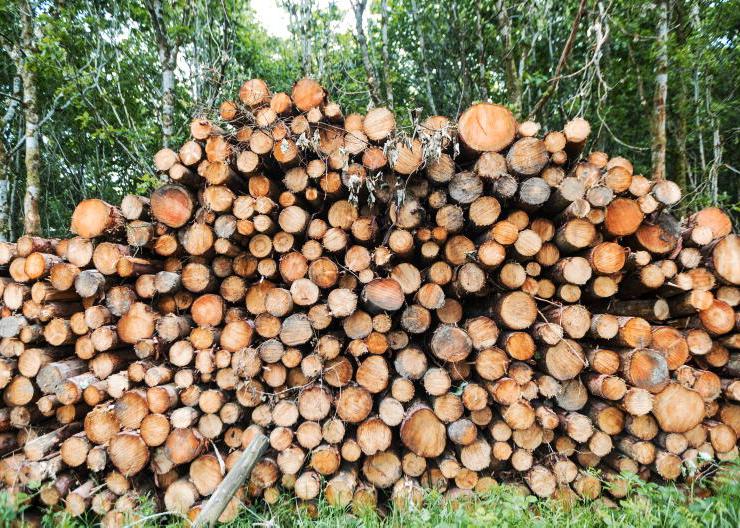Tapeworm infection: The updated Teagasc guidelines for finishing lambs on all-concentrate diets (see page 46) also discuss a relatively new problem - tapeworm infection in lamb carcases.
The issue has led to abattoir rejections and condemnation of carcases due to the presence of cysts in muscle or organs such as the liver, heart, diaphragm or carcase muscle. Known as cysticercosis, it is caused by a tapeworm, Taenia ovis, which lives in the small intestine of dogs and foxes and is transmitted to sheep, which are the intermediate host, when they consume feed or forage contaminated by dog/fox faeces.
The risk of the disease is much greater in intensive production systems, as contamination can be spread through a large amount of feed leaving more sheep exposed. Tapeworm infection and another disease, sarcocystosis, which also affects the appearance of meat can be managed in a straightforward manner that prevents transmission from dogs to sheep and vice versa.
Canine infection for tapeworms can be eliminated by regular worming of dogs, with the Teagasc guidelines recommending a six-week interval using praziquantel. Purchased dogs should be treated with praziquantel one week before arrival to the farm. Dogs should be prevented from roaming, as this increases the likelihood of them becoming infected by tapeworms.
Exposure of sheep to canine faeces should be minimised by keeping dogs out of sheep pastures and limiting the access of dogs, foxes and cats to feed storage areas. Disposing of sheep carcases promptly and properly is also vital. Never allow foxes, dogs or cats to have access to dead sheep. Store securely to prevent access to predators, birds or rodents while awaiting delivery or collection to a knackery. Take care when purchasing sheep to avoid flocks where there is any history of disease.
Scrapie genotyping: The genotyping service provided via Sheep Ireland has been approved by the Department of Agriculture for generating scrapie results as part of the National Genotype Programme. Sheep Ireland says a major benefit is that farmers can collect the sample themselves.
The process involves collecting DNA via a small ear tissue sample using a third tag. The tag number corresponds with the animals existing NSIS tag while DNA parentage verification verifies that the correct animal has been DNA sampled and ensures that the scrapie results are accurate. Therefore, for Department approval, both parents must be genotyped and match their offspring.
Sheep Ireland says breeders can order and pay for their genotypes using their Sheep Ireland account. Once ordered, a tissue tag will be delivered in three to five working days with a return addressed envelope. Results will take two to four weeks depending on time of year and demand. LambPlus breeders can currently avail of subsidised genotyping at a cost of €10/sample.
A Department approved scrapie certificate for a parentage verified animal that has been genotyped via Sheep Ireland can be requested by contacting Sheep Ireland on 0238820451 or query@sheep.ie.
Mart events: The first Irish Farmers Journal sheep event supported by FBD takes place in Cootehill Mart in Cavan on Monday 18 November. Free health checks take place from 5pm until the event starts at 7pm. Topics covered include winter feeding of ewes, health protocols including liver fluke, lameness and worms, along with a scheme and market update. The second sheep event takes place in Roscommon Mart on Wednesday 20 November.
Tapeworm infection: The updated Teagasc guidelines for finishing lambs on all-concentrate diets (see page 46) also discuss a relatively new problem - tapeworm infection in lamb carcases.
The issue has led to abattoir rejections and condemnation of carcases due to the presence of cysts in muscle or organs such as the liver, heart, diaphragm or carcase muscle. Known as cysticercosis, it is caused by a tapeworm, Taenia ovis, which lives in the small intestine of dogs and foxes and is transmitted to sheep, which are the intermediate host, when they consume feed or forage contaminated by dog/fox faeces.
The risk of the disease is much greater in intensive production systems, as contamination can be spread through a large amount of feed leaving more sheep exposed. Tapeworm infection and another disease, sarcocystosis, which also affects the appearance of meat can be managed in a straightforward manner that prevents transmission from dogs to sheep and vice versa.
Canine infection for tapeworms can be eliminated by regular worming of dogs, with the Teagasc guidelines recommending a six-week interval using praziquantel. Purchased dogs should be treated with praziquantel one week before arrival to the farm. Dogs should be prevented from roaming, as this increases the likelihood of them becoming infected by tapeworms.
Exposure of sheep to canine faeces should be minimised by keeping dogs out of sheep pastures and limiting the access of dogs, foxes and cats to feed storage areas. Disposing of sheep carcases promptly and properly is also vital. Never allow foxes, dogs or cats to have access to dead sheep. Store securely to prevent access to predators, birds or rodents while awaiting delivery or collection to a knackery. Take care when purchasing sheep to avoid flocks where there is any history of disease.
Scrapie genotyping: The genotyping service provided via Sheep Ireland has been approved by the Department of Agriculture for generating scrapie results as part of the National Genotype Programme. Sheep Ireland says a major benefit is that farmers can collect the sample themselves.
The process involves collecting DNA via a small ear tissue sample using a third tag. The tag number corresponds with the animals existing NSIS tag while DNA parentage verification verifies that the correct animal has been DNA sampled and ensures that the scrapie results are accurate. Therefore, for Department approval, both parents must be genotyped and match their offspring.
Sheep Ireland says breeders can order and pay for their genotypes using their Sheep Ireland account. Once ordered, a tissue tag will be delivered in three to five working days with a return addressed envelope. Results will take two to four weeks depending on time of year and demand. LambPlus breeders can currently avail of subsidised genotyping at a cost of €10/sample.
A Department approved scrapie certificate for a parentage verified animal that has been genotyped via Sheep Ireland can be requested by contacting Sheep Ireland on 0238820451 or query@sheep.ie.
Mart events: The first Irish Farmers Journal sheep event supported by FBD takes place in Cootehill Mart in Cavan on Monday 18 November. Free health checks take place from 5pm until the event starts at 7pm. Topics covered include winter feeding of ewes, health protocols including liver fluke, lameness and worms, along with a scheme and market update. The second sheep event takes place in Roscommon Mart on Wednesday 20 November.










SHARING OPTIONS